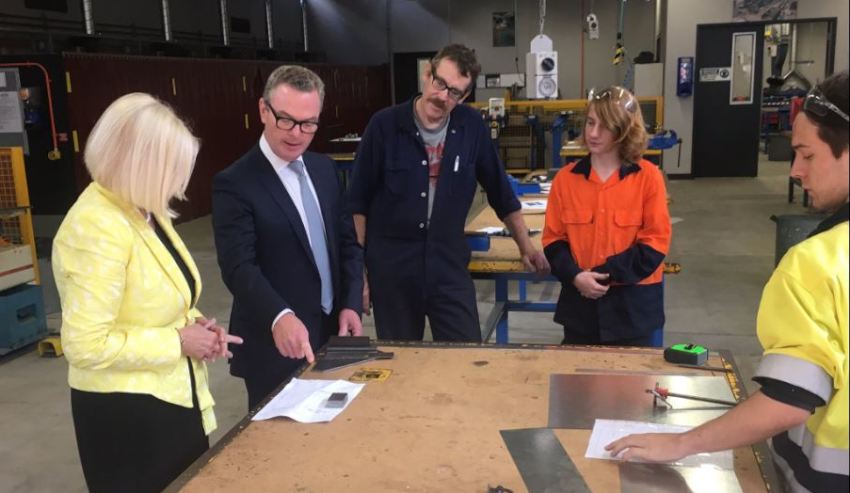Minister for Defence Industry Christopher Pyne has announced the release of a request for proposal for the South Australia-based Naval Shipbuilding College.
The government said the college, a key initiative of the Naval Shipbuilding Plan released earlier this month, will attract, train and retrain naval shipbuilding workers for the government’s $90 billion shipbuilding program.
"As outlined in the Naval Shipbuilding Plan, the naval shipbuilding workforce is expected to grow to around 5,200 workers by the mid to late-2020s, with more than double this number of workers in sustainment activities, supply and related industry chains across Australia," Minister Pyne said.
"The release of the request for proposal is an important step in ensuring the required workforce is equipped with the right skills at the right time to implement the government’s ambitious naval shipbuilding program."
The minister has said the college will eventually move into including higher education qualifications, but initially will concentrate on entry-level trades.
"The initial focus will be on key entry-level trades, and will later expand to include higher education qualifications such as naval architecture and engineering," said Minister Pyne.
Although the tax-payer funded $25 million college will be based in Adelaide, the minister has maintained there will be opportunities for education and training providers across Australia.
"Training providers from across the country such as the Australian Maritime College in Launceston and TAFE providers across the country are in the perfect position to benefit from this government initiative," Minister Pyne said.
"The Naval Shipbuilding College will be national in scope. It will work with, rather than compete with, existing education institutions across Australia."
The minister also said there would be opportunities for current workers in shipbuilding, sustainment and supply industries.
"Developing training to facilitate career paths from entry level trades to more senior positions like foreman and middle managers will be important," Minister Pyne said.
"The Naval Shipbuilding College will also reach out to workers in adjacent industries, including those recently made redundant in the automotive industry."
The government's current projected timeline for the college is as follows:
Phase 1:
The first phase of the Naval Shipbuilding College, commencing in early 2018, will build capacity and annual throughput at existing education and training facilities around Australia, with the College headquarters at Osborne providing the central hub for managing implementation and collaboration between stakeholders, along with delivery of naval shipbuilding career awareness programs.
The focus will be on increasing key entry-level trade qualifications, reflecting the greatest demand expected in early years of the construction projects for trade qualified workers in structural and outfitting occupations.
Although key entry-level trade qualifications in Australia are typically provided through a traditional apprenticeship pathway, which involves an employer recruiting an apprentice and training them on the job, shipbuilders in SA are unlikely to recruit many apprentices before demand begins to ramp-up in the early 2020s, which raises the question of how apprentices in these trades will receive the on-the-job training required for their trade.
The government hopes the new college will address this by seeking to arrange for suitable group training organisations across Australia to recruit naval shipbuilding apprentices and hire them out to their member employers for on-the-job training, potentially with naval shipbuilders, suppliers and sustainment providers both in Australia and internationally. The successful tenderer implementing the first phase of the college will also collaborate with government and education and training providers to trial alternative approaches to the traditional Australian apprenticeship scheme, such as up-front formal training, effectively delaying the job training component.
Phase 2:
The second phase of the Naval Shipbuilding College will commence around 2020-21, increasing the capacity and throughput of students in key higher education qualifications (such as naval architecture and engineering) through universities. It will also develop and provide bridging programs for qualified workers from allied industries (such as automotive manufacturing and resources).
Phase 3:
The third phase of the Naval Shipbuilding College will commence around 2022-23. This will see the development of a purpose-built training facility located at the Osborne Naval Shipyard. Following thorough consultation with government and industry partners, including selected designers and builders for the three build programs, the college will offer a range of naval shipbuilding education and training, arrange placements for students and graduates, and actively seek to recruit candidates from other geographic locations. This approach will ensure the numbers and types of skilled workers increase in line with industry demand.






